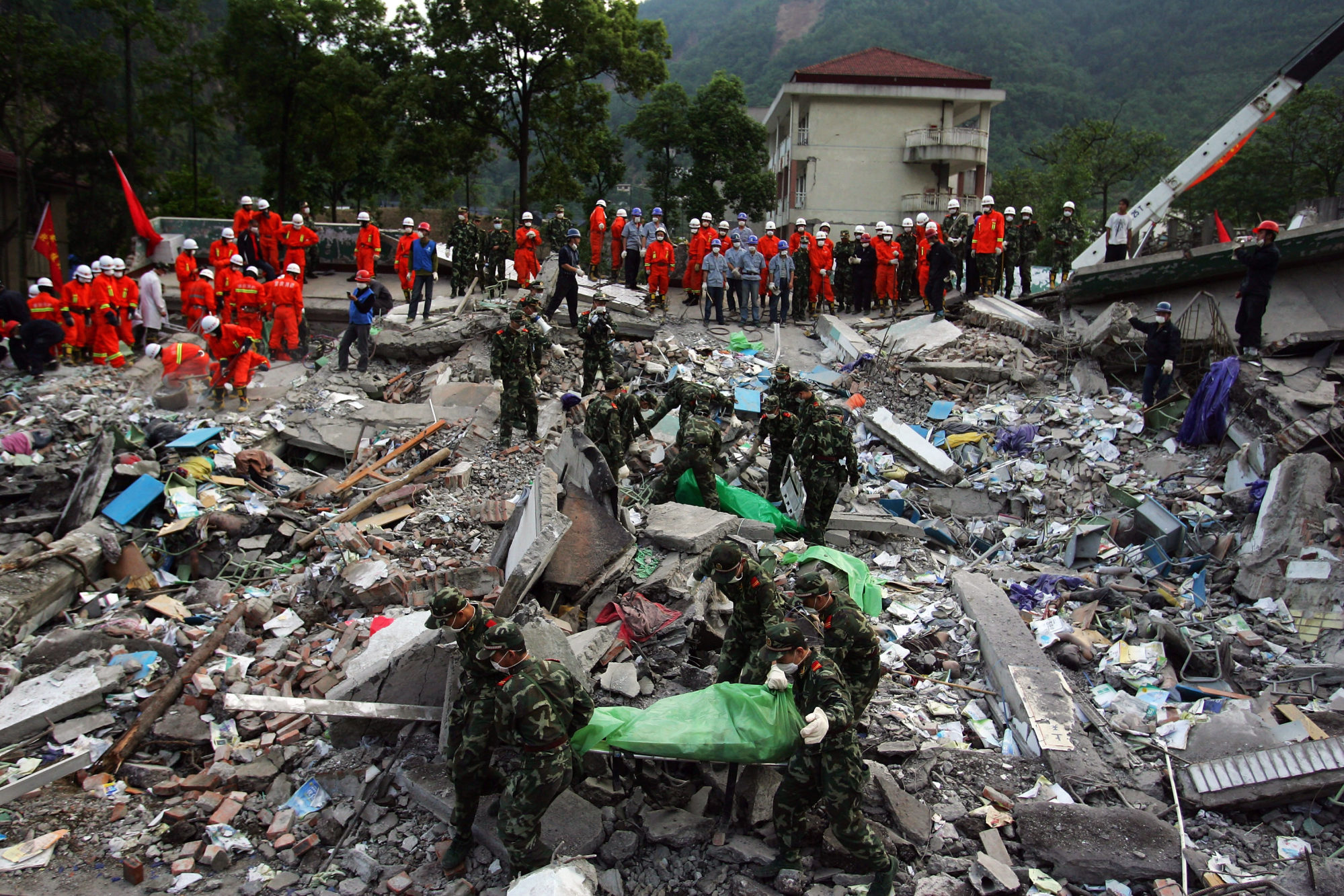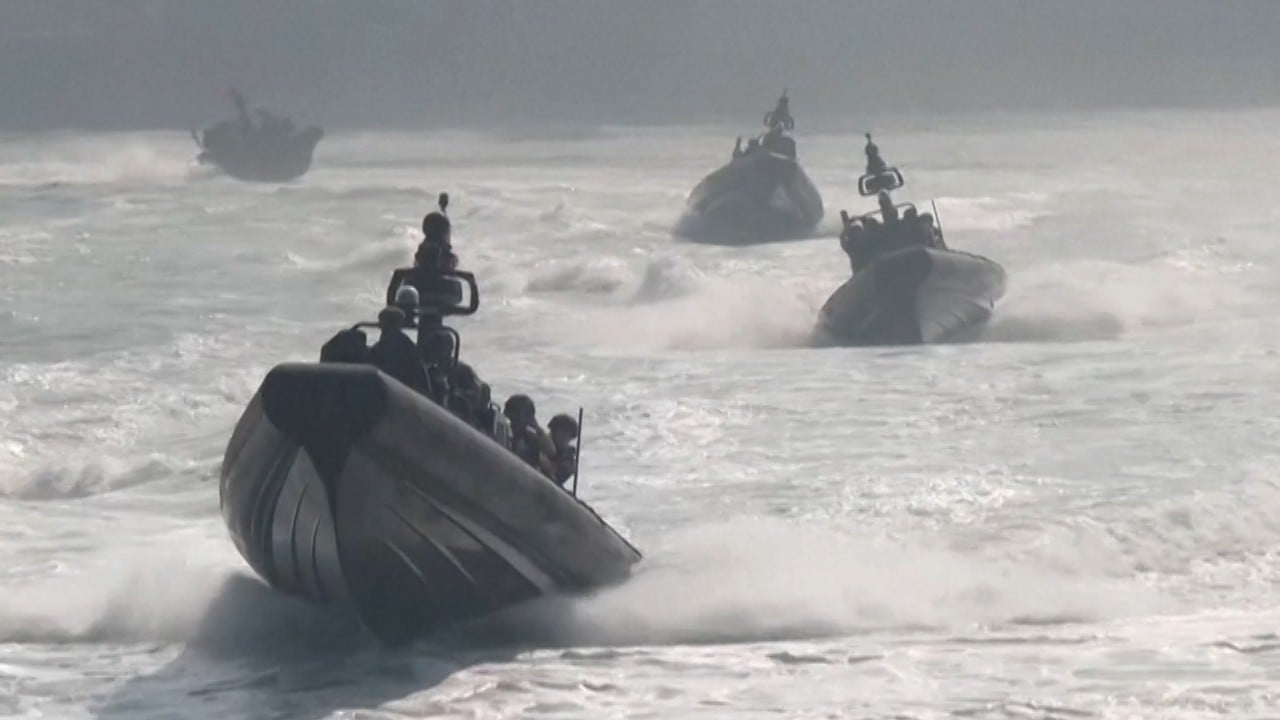The hearing follows growing tension in the Indo-Pacific, US moves to reduce dependence on Chinese supply chains and Washington concerns that exports of high-end US semiconductor exports to China are being increasingly diverted for military purposes.
Beijing’s domestic messaging about the need for “struggle” and maintaining “vigilance” against foreign forces currently appears more directed at stemming domestic tensions given the Chinese economy’s difficulties – which include a meltdown in the real estate sector and chronic unemployment – rather than signs of any imminent plan to invade Taiwan.
But they added that future indications of a possible military campaign might include a shift in social messaging to demonise Taiwanese residents as well as mass education campaigns warning of tougher times ahead.
Other indications could include a rapid build-up in already significant food, energy and strategic mineral reserves; a focus on first aid, sheltering and other civilian defence measures – particularly in Fujian, Guangdong and other areas around Taiwan – and a shift in propaganda messaging.
“What is its tone? What is the content?” said Lauri Paltemaa, a professor at the University of Turku in Finland. “Maybe even who is allowed to be talking. Is it the Global Times trashing America or they’ve been silenced? There are very, very many indicators that you should follow.”
Assessing Beijing’s intentions has been complicated by growing restrictions on foreign companies, cross-data flows, access to Chinese databases and academic exchange. Witnesses said that Beijing has become convinced that the US is intent on blocking its development and is working to encircle it.
“There is a fundamental shift that’s taking place, which is much more pronounced in the last three-four years, where security has been prioritised over development,” Manoj Kewalramani, chairman of the Indo-Pacific Research Programme and a China fellow at Takshashila Institution in India.
“While there is this talk about the need to have a balance between the two of them, security has clearly won out.”
The extent of China’s stockpiling of grain and oil – which could presage a Taiwan conflict– is a state secret, for example. But Beijing has credible concerns as farmland is lost to urbanisation, farm labour declines, water becomes more scares and global warming intensifies.
Gustavo Ferreira, a US Department of Agriculture economist, noted that “for millennia, the ruling class in this country has been extremely sensitive about ensuring food security for its population.
“It’s the precedence of famines and food crisis that trigger political stability and regime collapse,” he added.
“The bottom line is, it is very difficult for outsiders to discern whether [China’s] actions to improve its food security are just a government reaction to this structural challenge, or another step in the preparation for conflict.”
The commission monitors and investigates the national security implications of the trade and economic relationship between the US and China. While it does not have direct lawmaking authority, it advises and make recommendations to Congress on actions and policies.
Witnesses told the commission that China’s expanding emphasis on comprehensive national security under President Xi Jinping – which increasingly colors the economy, finance, technology, foreign affairs, ocean and space exploration – has driven legal, structural and civilian-military reforms.
Those reforms certainly could address legitimate domestic concerns, witnesses testified, but they might also serve dual purposes.
For example, Beijing’s enhanced emergency management system developed after the devastating Sichuan earthquake in 2008 aims to respond to natural disasters. But the system’s inclusion of air raid shelters and supply depots also serves a parallel function of preparing for any clash, they said.
“Many of the things we touched upon today, like disaster preparedness, like all the internal feel-good messages around national security and business struggle, they can serve very different functions,” said Katja Drinhausen, a programme head with Germany’s Mercator Institute for China Studies.
“They can just be there to be repaired, they can be there for a case of domestic crisis, they can be there for international conflict.”

China has paid a price for its security-first response to domestic problems and the US policy of building regional alliances and restricting tech exports, witnesses said.
Beijing’s zero-tolerance strategy to choke off the pandemic has left its economy still struggling to recover, with consumer confidence swooning at home.
That’s matched by a growing suspicion abroad, notably in Europe, which is troubled by Beijing’s attempt at economic coercion and its embrace of Russia as a counterweight to the West, they added.
But witnesses also offered advice on how the US might reduce tension and avoid conflict.
Steps include encouraging a more nuanced understanding among Western allies of China’s risk calculations in using force. The US could also expand educational exchanges, tourism and other people-to-people interactions to undercut a demonised view of foreigners.
Other suggestions included building ties with China’s emergency management systems – by, for example, providing satellite weather data and aid during a natural disaster – and avoiding a tit-for-tat security response that mirrors Beijing’s “over-securitisation” focus.
“The Chinese Communist Party, which sounds like a big, scary and a very ambiguous entity, ultimately, it’s also made up of leaders who are shaped by their worldviews,” Drinhausen said. “But it is also made of people that want to have a certain sense of predictability.”
“It is really important to stay in communication and explain to the Chinese side what the goals are,” she added.


